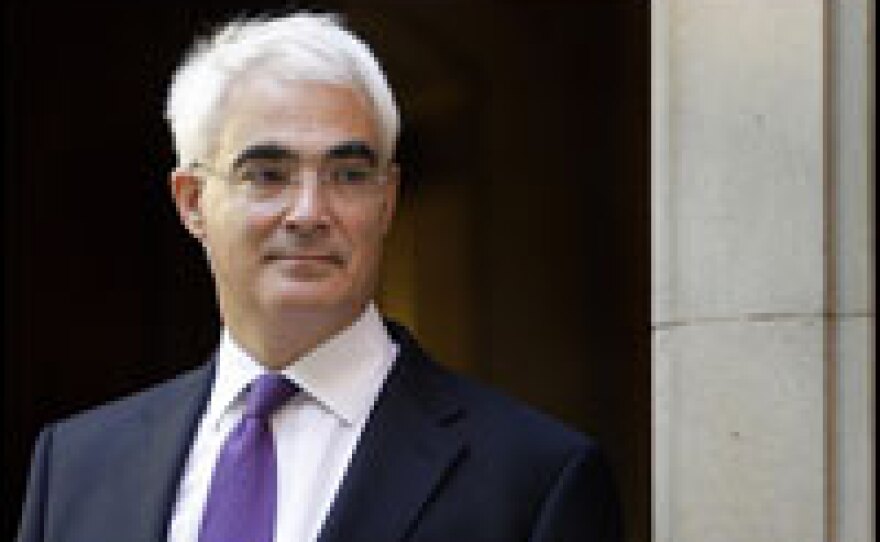
Many of the world's financial leaders are meeting in Washington, D.C., this weekend to discuss how to restore something that has turned out to be easy to lose and hard to get back: confidence in the financial markets.
Britain's chancellor of the exchequer, Alistair Darling, says governments around the world will have to work together to end the crisis and stop it from happening again.
"We're living in a time of huge uncertainty and huge turbulence. We haven't seen the likes of this for generations," Darling tells Steve Inskeep. "I think the key is to ensure that governments all over the world act together, firstly to stabilize the banking system ... but also agree amongst themselves that they will do whatever it takes to maintain stability."
Things will look different "when people have confidence that the banking system has enough capital behind it" — and realize that the "astronomical" amount of lending between banks is being supported by central banks and governments around the world, Darling says.
As rescue plans are put in place in the United States and Britain, he says, confidence will be rebuilt. But those nations' measures need to happen around the world.
"If ever you wanted an illustration of how globalized the economy is now, you see it in what's happening in the markets today," he says. "It means central banks and governments have got to work together to stabilize the system and support it in any way they can."
The point of the weekend meeting in Washington, D.C., is to come away with a commitment "not just from the world's largest economies but from the IMF [International Monetary Fund] generally to make sure that we deal with the problem" and also take steps to stop it from happening again.
Other nations' governments have seemed hesitant to intervene to the extent that Britain and the U.S. have, but Darling says that's changing rapidly.
"The mood's changing. ... It's a problem in every part of the world, every government. The fact that all the central banks of the big countries cut interest rates together. ... People now see this as a global problem."
Darling says he doesn't think government involvement has to be a permanent feature of the financial industry around the world, but it's needed now to help stem the crisis.
"Markets cannot sort this problem on their own, and governments do need to be prepared to intervene on behalf of the people who elect them," he says. "People who elect them expect governments to do something to help them. That's what we're doing. That's what's happening in different parts of the world, and that's what we're going to be discussing over these next couple of days."
Copyright 2022 NPR. To see more, visit https://www.npr.org. 9(MDAzMjM2NDYzMDEyMzc1Njk5NjAxNzY3OQ001))





